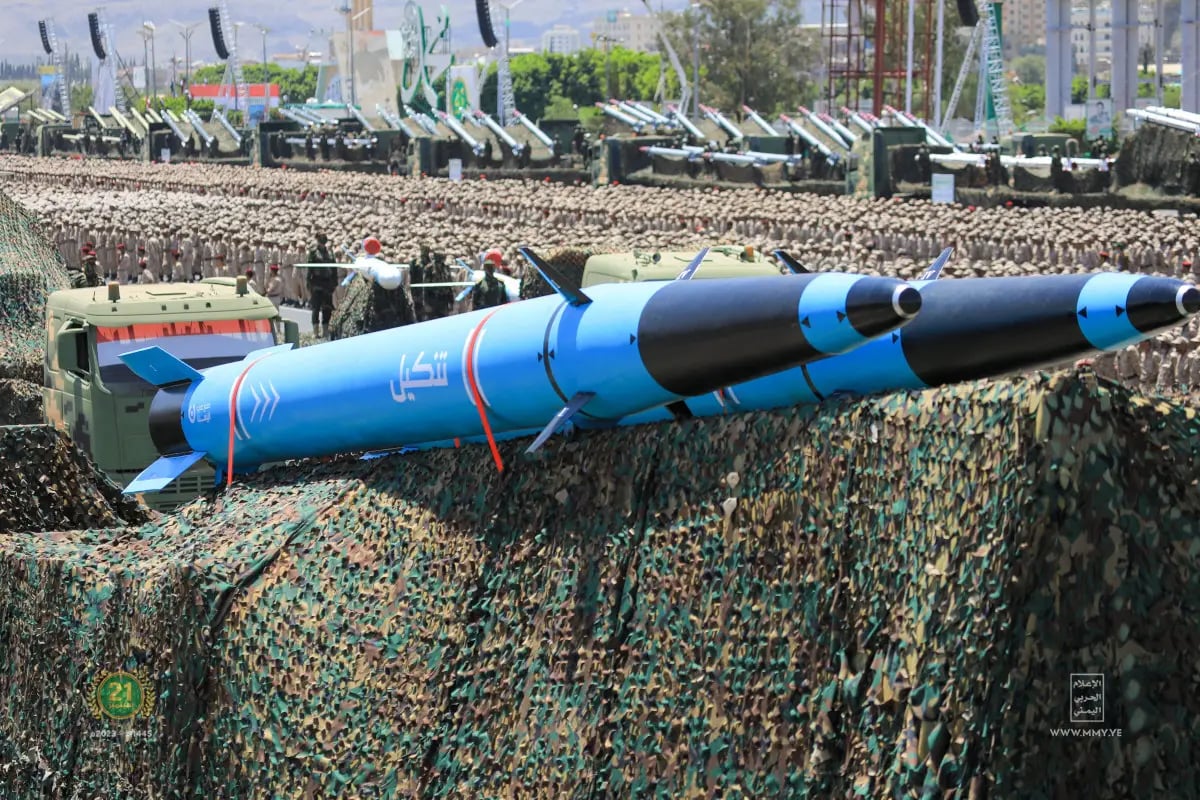
The Houthis will target any ship it believes is connected to a company supplying Israel and block it from passing through the Red Sea if Israel invades Rafah in the Gaza strip, its military spokesman announced via social media Friday.
The Houthi threat also includes targeting any ship heading to Israel that it can reach with its missiles and attack drones, including those approaching the country from the Mediterranean Sea, Houthi Brig. Gen. Yahya Sare’e said via a post on social media site X.
“If the Israeli enemy intends to launch an aggressive military operation against Rafah, the Yemeni Armed forces will impose comprehensive sanctions on all ships and companies that are related to supplying and entering the occupied Palestinian ports of any nationality and will prevent all ships of these companies from passing through the armed forces’ operation zone regardless of their destination,” Sare’e said in his post.
The Houthis consider it the fourth phase of their escalating actions in the Red Sea.
If the Houthis make good on their threats, it would be an escalation of their attacks on commercial ships in the Red Sea and Gulf of Aden. To date, they claim attacks have been limited to ships going to Israel or those with connections to Israel, the United States and the United Kingdom. The Pentagon disputes that claim and has said that the Houthis have targeted multinational ships. In at least one instance, the Houthis have targeted at least one Chinese ship, according to USNI News’ timeline of activity in the Red Sea. It is possible that the Houthis were using old information and did not realize the ship now had Chinese ownership, USNI News reported at the time.
“The Houthis continue to endanger commercial shipping that goes through that region, continue to put at risk U.S. forces, other countries’ forces in the region who want to see commerce continue to flow in a very crucial area in the Middle East,” a Department of Defense spokesperson told USNI News in an email Monday.
The spokesperson did not respond to USNI News’ questions asking how Central Command might restructure in order to counter the Houthi threat in the Red Sea and Gulf of Aden. Nor did they answer a question about reorganization in the Med in response to the Houthi claim the group could target ships heading to Israel.
“As you would expect, the U.S. is also bringing significant complementary capability for force protection as a prudent measure. As you can appreciate, I won’t be able to talk in any specifics about the force protection measures in place,” the spokesperson said in the email.
The Houthis’ decision to act against international shipping in the Red Sea does not have to do with Israel, Behnam Ben Taleblu, an Iran expert at the Foundation for the Defense of Democracies, told USNI News over the weekend. Instead, this was a decision made long ago.
“In a sense, by rhetorically expanding the threat, the Houthis are trying to catch up to the regional reality they have created,” Ben Taleblu said.
The Houthis do have the capability to wield its military operations to influence Israel’s decision in its war with Hamas, he added.
“Lest we forget, the Houthis are the only element of Iran’s Axis of Resistance with anti-ship ballistic missiles. These might be paired with anti-ship cruise missiles, drones, mines, and speed boats to maximize the harassment threat,” he said.
USS Dwight D. Eisenhower (CVN-69) and USS Gravely (DDG-107) are back in the Red Sea after being in the Med and making a port call at Souda Bay, Greece. It is the first port call for the aircraft carrier, which deployed in October.
A Department of Defense spokesperson could not confirm if the Dwight D. Carrier Strike Group will be extended to continue the U.S. presence in the Red Sea.





